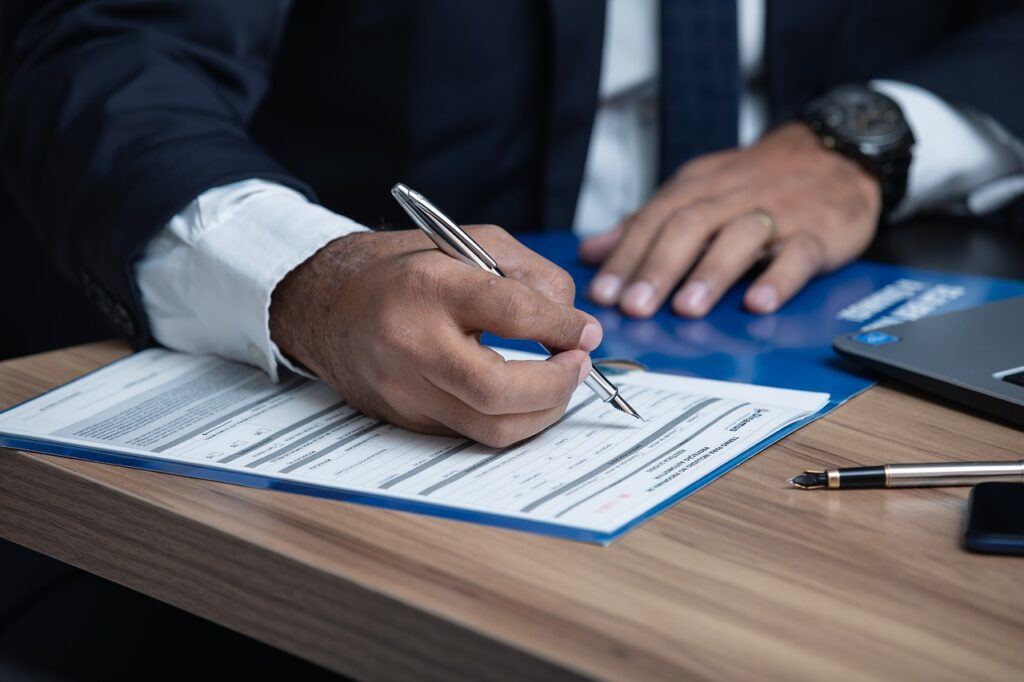Now Reading: The Role of a Lawyer in Post-Accident Situations
-
01
The Role of a Lawyer in Post-Accident Situations

The Role of a Lawyer in Post-Accident Situations
Accidents can be overwhelming, leaving you with physical injuries, emotional distress, and financial worries. Understanding the role of a lawyer after an accident can be crucial to navigating this challenging time effectively. Here’s how a lawyer can help you manage the aftermath and secure the compensation you deserve.
Handling Insurance Claims
Dealing with insurance companies can be complex and frustrating. A lawyer can handle all communications with insurance adjusters, ensuring that your interests are protected. When it comes to insurance claims, personal injury lawyers can be crucial in negotiating fair settlements and ensuring you receive the compensation you deserve. They can negotiate settlements on your behalf and push back against unfair offers, aiming for a fair resolution.
Legal Advice and Guidance
A lawyer offers expert advice tailored to your specific accident and injury. They help you understand your legal rights and options, providing clarity on how to proceed. This guidance is invaluable in making informed decisions about filing claims and addressing legal issues that may arise.
- Understanding Your Rights: A lawyer clarifies your legal rights, helping you navigate the complex landscape of personal injury law. They explain what you are entitled to, including compensation for medical expenses, lost wages, and pain and suffering. This understanding allows you to make informed decisions about your case and the best course of action.
- Evaluating Your Case: Lawyers assess the strength of your case by reviewing evidence, medical records, and accident reports. They provide an honest evaluation of your chances of success and advise on potential outcomes. This evaluation helps you set realistic expectations and decide whether to pursue a settlement or go to trial.
- Guiding You Through Legal Options: Your lawyer outlines various legal options, including filing a lawsuit or seeking a settlement. They explain the benefits and drawbacks of each option, helping you weigh them against your circumstances. This guidance ensures that you choose the path that best aligns with your goals and needs.
- Answering Your Questions: Throughout the legal process, you’ll likely have numerous questions and concerns. A lawyer provides clear and detailed answers, addressing any uncertainties you may have about the process, legal terminology, or next steps. Their ongoing support helps alleviate stress and ensures you are well informed at every stage.
Collecting and Presenting Evidence
To build a strong case, you need solid evidence. A lawyer will gather and organize crucial documents, such as medical records, accident reports, and witness statements. They have the skills to present this evidence effectively, supporting your claim and demonstrating the extent of your damages.
Navigating Legal Procedures
Legal procedures following an accident can be intricate. A lawyer will manage the procedural aspects, such as filing necessary paperwork and meeting deadlines. Their experience ensures that no critical steps are overlooked, helping to streamline the legal process and reduce stress on your part.
- Timely Filing of Claims: A lawyer ensures that all claims are filed within the required deadlines. Missing a deadline can jeopardize your case or reduce your compensation. They keep track of all important dates and manage the filing process to avoid any delays.
- Preparation of Legal Documents: Handling various legal documents accurately is crucial. A lawyer will prepare and review documents such as legal petitions, discovery requests, and settlement agreements. Proper documentation supports your case and prevents potential legal issues.
- Compliance with Legal Procedures: Different jurisdictions have specific procedural rules and requirements. Your lawyer will ensure that your case complies with all local laws and regulations. This adherence minimizes the risk of procedural errors that could negatively impact your case.
- Coordination with Other Parties: Legal cases often involve multiple parties, including insurance companies, medical professionals, and opposing counsel. A lawyer coordinates with these parties, managing communications and ensuring that all necessary information is exchanged. This coordination helps to keep your case on track and facilitates smoother proceedings.
Representing You in Court
If your case goes to trial, having a lawyer is essential. They will represent you in court, presenting your case and advocating for your rights. Their courtroom experience and legal expertise are crucial for effectively arguing your case and achieving a favorable verdict.
Negotiating Settlements
Often, accidents are resolved through settlements rather than court trials. A lawyer will negotiate with the responsible party’s legal team to reach a fair settlement. They use their negotiation skills to ensure you receive appropriate compensation for your injuries, lost wages, and other damages.
A lawyer plays a vital role in managing the aftermath of an accident. From providing legal advice and handling insurance claims to representing you in court and negotiating settlements, their expertise helps you navigate the complex legal landscape and work towards a favorable outcome. If you’ve been involved in an accident, consulting with a lawyer can make a significant difference in achieving justice and recovery.











